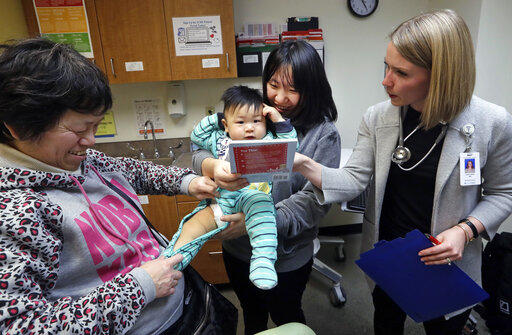Section Branding
Header Content
New Cases Of Measles Confirmed In Georgia
Primary Content
The Georgia Department of Public Health on Thursday confirmed three new cases of measles in the state.
In January, three cases of measles were confirmed in the Atlanta area, bringing the total for 2019 to six cases and two families, DPH spokeswoman Nancy Nydam said.
This comes as the nation is experiencing its highest rates of measles cases since the disease was eliminated from the United States in 2000.
There have been 695 measles cases in 22 states, according to the Centers for Disease Control and Prevention.
Health and Human Services Secretary Alex Azar said in a statement that measles is not a harmless childhood illness, but a highly contagious, potentially life-threatening disease.
"All Americans would be safer and healthier if we received measles vaccines on the recommended schedule," Azar said.
RELATED: CDC Reports Largest U.S. Measles Outbreak Since Year 2000
The vaccine for measles, mumps and rubella, or the MMR vaccine, is one of the most effective, state epidemiologist Cherie Drenzek said.
While the disease is highly contagious, it is preventable through vaccination.
“Keeping immunization levels high is critical to preventing outbreaks or sustained transmission of measles in Georgia," Drenzek said. "It also provides herd immunity for those who cannot be vaccinated.”
The health department cautions that measles spreads when an infected person breathes, coughs or sneezes and respiratory droplets travel through the air.
"Measles virus can live in the air and on surfaces for two to three hours," Nydam said. "Almost everyone who has not been vaccinated will get measles if they are exposed to the virus."
Anyone who believes they have been exposed to measles should first contact their health care provider immediately.
"DO NOT go to the doctor’s office, the hospital, or a public health clinic without FIRST calling to let them know about your symptoms," the health department warns.
Symptoms of measles include:
- Fever (can be very high)
- Cough, runny nose and red eyes
- Tiny white spots on the inner lining of the cheek – also called Koplik’s spots
- Rash of tiny, red spots that start at the head and spreads to the rest of the body (spots may become joined together as they spread)
There had been six measles cases in Georgia in the last 14 years before the six cases this year.


